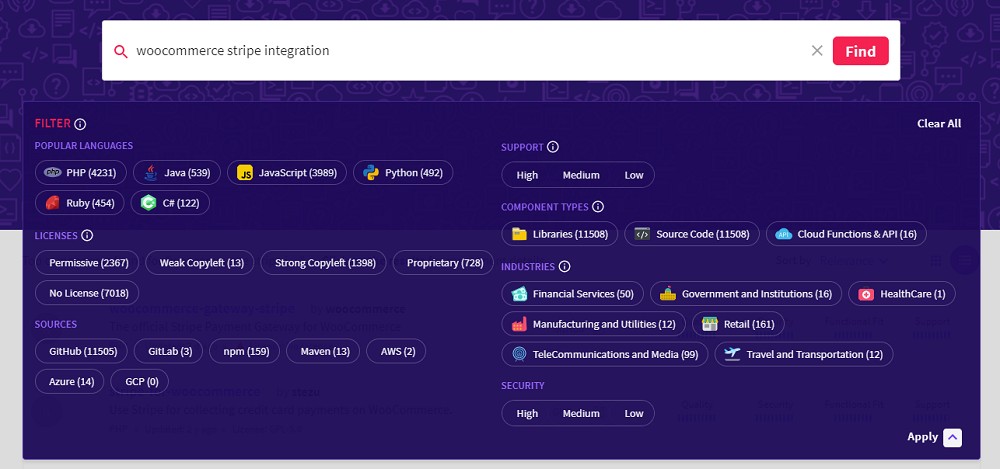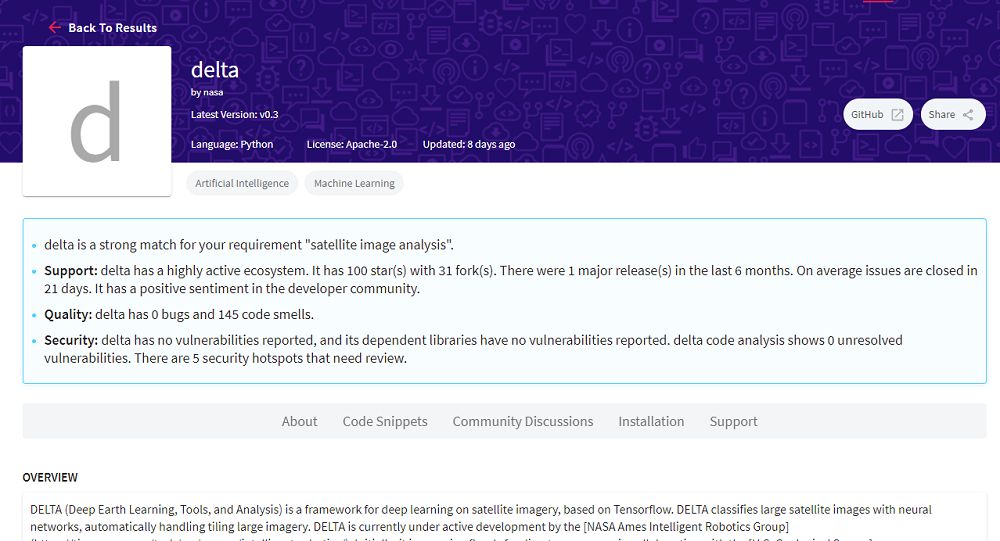kandi is a platform from Open Weaver Inc that helps developers find reusable libraries for specific requirements in their application development. kandi’s algorithms match each requirement against a knowledge store of over 430 million knowledge items across open source, public libraries, code snippets, solutions, marketplaces, and APIs. Developers can also leverage kandi collections that list the top library choices in various technologies and kandi kits that provide a set of libraries that solve common industry use cases. These help developers achieve a higher degree of reusability.
kandi takes a refreshingly different approach to accelerate application development. While there is a lot of focus and investments on DevOps related streams to build applications faster, kandi leapfrogs in productivity by enabling reuse instead of reinventing the wheel. kandi seamlessly bridges the silos of all public application resources across open source, public repositories, packages, APIs, knowledge articles, snippets through AI technologies, making global discovery and reuse possible.
Who Needs It: Global developers across all popular programming languages can use kandi to accelerate their application development.
Core Features: kandi brings in multiple features that ease finding and reusing application libraries. Some of the key features are:
1. Universal coverage enabling developers to tap global knowledge. kandi covers all open source, repository, package, cloud API providers, review, Q&A platforms to get the most relevant component to the developer’s requirements.
2. Multi-dimensional natural language search helps developers focus on requirements, while kandi translates it across 430 million knowledge items covering different software asset types and industry domains to get the best-fit components.
3. Ratings and Guides to help developers reuse suitable libraries. kandi provides scores computed by its patent-pending algorithms across quality, security, license, support availability, and guides across code snippets, community discussions, and installation to help choose and reuse the suitable component.
4. Collections and Starter Kits that simplify adoption choices. kandi provides for collections and starter kits across multiple technologies and industry use cases for developers to reuse or leverage as inputs into their application design in that industry or technology.
5. Since kandi exclusively focuses on application development resources, its results are precise, and developers do not need to wade through millions of SEO-driven articles.
Why Now: Digital demand is continuing to rise, and the pandemic has furthered this need. While DevOps technologies will provide incremental acceleration to application development, global reuse will provide exponential productivity. With millions of public repositories and code snippets added every year, every new use case is available for reuse. This scale reflects in kandi’s coverage across all major industries and all popular technologies. So why build something, even if faster, when it is already available to you!
Up Next: kandi has a robust multi-year roadmap to accelerate application development using the world’s knowledge and artificial intelligence technologies. Some immediate features are user-generated collections, starter kits, ability to save and track your favorite libraries. Stay tuned!
In summary: kandi takes a refreshingly different approach to accelerate application development through global reuse, providing exponential productivity improvement. Given that there are at least 50 million public libraries, hundreds of millions of code snippets, and the count increasing by the millions every year, and AI technologies getting smarter, this is opening up a new paradigm in application development productivity.



